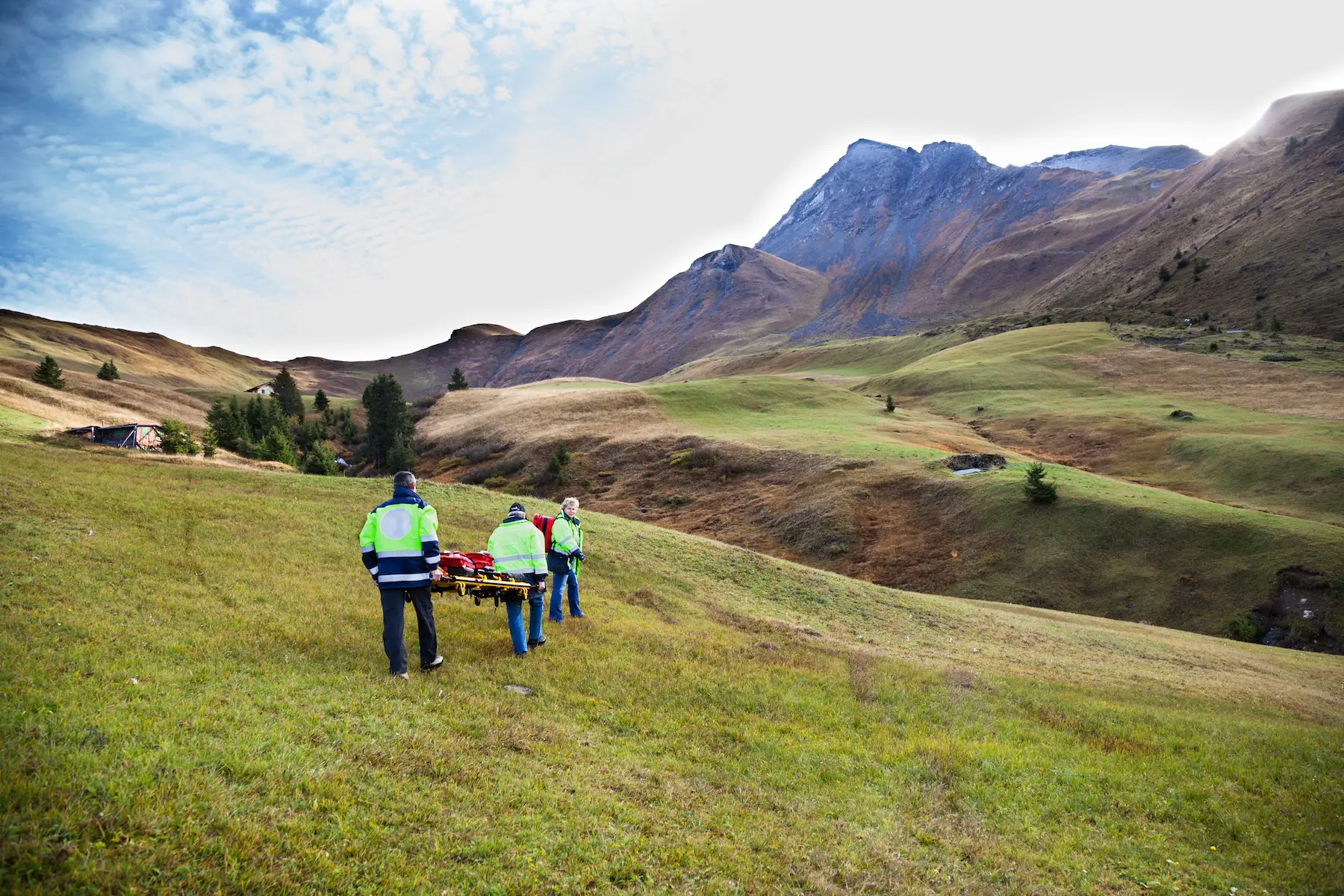From its world-class education and banking systems to its stunning landscapes and indulgent cuisine, Switzerland has much to offer expat families. Not only that, but the Swiss healthcare system is also one of the best in the world, which means that parents in Switzerland can expect a very high level of healthcare for their children.
That said, when moving to a new country with little ones, it’s important to understand how pediatric care works and how to access it. So, to help you navigate the system, this article provides the following information:
- Children’s healthcare in Switzerland
- How to access healthcare for your children
- Taking your child to see a pediatrician
- Taking your child to see a doctor or specialist
- Children’s hospitals in Switzerland
- Children’s dental care in Switzerland
- Mental healthcare in Switzerland
- Preventative healthcare programs for children in Switzerland
- Useful resources
Cigna Global
Enjoy peace of mind while living in Switzerland with Cigna Global’s long-term international health insurance plans (12+ months). Get tailored coverage, direct billing with many providers, complex case management, and global care on demand, with access to a network of 1.5+ million doctors, specialists, and therapists.
Children’s healthcare in Switzerland
Children’s healthcare in Switzerland is on par with the rest of the country’s high-quality medical system. In fact, the country spends around 11.8% of its GDP on healthcare every year, which is one of the highest in Europe. Of course, some of this also goes towards caring for children.

Several parties are responsible for providing and overseeing children’s healthcare in Switzerland and as such, parents have a range of options when it comes to seeking medical care for their little ones. Currently, there are 958 pediatricians and 5,945 general practitioners providing private primary care for children in the country. Additionally, 32 pediatric hospitals and departments provide secondary and tertiary care. Some hospitals also provide care for children without having a formal pediatric department.
Because each of the 26 Swiss cantons has its own culture which influences children’s physical activity and obesity levels, the health of youngsters throughout the country can vary. For instance, studies have shown that children in the German-speaking regions are more physically active and tend to be less obese than their counterparts in the French-speaking cantons.
How to access healthcare for your children
The Swiss government stipulates that all residents must purchase a minimum basic health insurance package, with private top-ups available. This also applies to children, who must have their own health insurance policies in order to access healthcare in the country.
Switzerland’s basic health insurance scheme covers a variety of services, including pediatric care, childhood vaccinations, basic medical treatments, and treatments in pediatric hospitals. However, parents will still have to make copayments; although the exact amount depends on the specific insurance policy.

In terms of accessing children’s healthcare, pediatricians are typically the first port of call for infants. However, as children get older, they will generally move on to visiting their family’s general practitioner.
Insurance for children in Switzerland
As mentioned, all residents in Switzerland must contribute to a Swiss health insurance scheme in order to access basic medical coverage. This includes all children, who must have their own health insurance policy within three months of their birth. Fortunately, though, there are many types of insurance schemes on offer, and parents can choose whether they want a basic policy or prefer to include additional benefits and alternative treatments. Some providers also offer family discounts if one of the parents is already insured with the company.
Notably, some parents in Switzerland also choose to take out an insurance policy for the child before it is born, as this offers an extra layer of protection. For example, if the baby is born prematurely or with congenital medical problems, the insurance policy will cover treatments for this.

While Switzerland’s basic health insurance schemes offer a high level of coverage, many expat parents also choose to take out supplementary private health insurance in order to access a wider range of services and treatments or better accommodation in the case of hospital admission.
Some of the largest health insurance companies operating in Switzerland include:
There are also several price comparison websites that allow you to compare quotes from different providers.
Taking your child to see a pediatrician
Pediatricians are the primary healthcare providers for children in Switzerland. They treat a range of medical conditions including physical problems, mental illness, psychosomatic issues, and well-child visits. As a result, almost 80% of Swiss pre-schoolers visit a pediatrician for healthcare. Most children in Switzerland visit them when they are young, but almost half switch to seeing regular GPs by the age of 11.
Parents can choose which pediatrician they want to provide healthcare for their children. However, they should check that the pediatrician is a member of the Swiss Society of Pediatrics (SGP). This organization is also a good place to start looking for a reputable pediatrician, although you can also ask friends for recommendations.
Routine childhood health check-ups
Similar to most other countries, children’s healthcare in Switzerland involves regular check-ups. These routine well-child visits check that a child’s health and growth are on track. They can also involve some preventative screenings.
In the first few months of their lives, babies are monitored to check that they are growing and developing normally and that their hearing, vision, neurology, respiratory, and cardiac systems are normal. During this time, many parents also choose to begin the childhood vaccination regime and carry out blood screenings.

As the child grows, regular pediatric visits continue to check for appropriate progress in weight, size, feeding, walking, hearing, seeing, motor skills, and more. For older children, the check-ups move into monitoring BMI, language skills, and socialization, among other factors.
The SGP mandates that children should undergo these routine check-ups at 1, 2, 4, 6, 12, and 18 months of age. After that, they can be done at 2, 4, 6, 10, and 14 years of age.
Vaccinations for children in Switzerland
Although Switzerland doesn’t have compulsory vaccinations as part of its children’s healthcare system, it recommends many of the same shots as many other countries to protect public health. Basic health insurance policies also cover these to encourage parents to vaccinate their children.
Switzerland recommends the following vaccinations throughout childhood and adolescence:
- Whooping cough
- Diphtheria
- Hepatitis B
- Tetanus
- Measles, mumps, and rubella (MMR)
- HPV
- Varicella
Taking your child to see a doctor or specialist
Some children, especially teenagers, choose to see a doctor instead of a pediatrician. And, in some cases, little ones may need to see a specialist for further care and treatment.
You can easily register your child with a general practitioner when they are ready to move on from pediatric care. You simply need to show your child’s ID and health insurance card and fill out the necessary forms.
If a child needs to see a specialist, they may need a referral from their primary care provider. This would be the case, for example, if they need to see an oncologist. To see a dermatologist, however, you can usually just make an appointment directly. Having said that, it is usually best to check with the primary care provider first.
Children’s hospitals in Switzerland
Although private clinics provide most children’s healthcare services in Switzerland, there are many hospital services, too. For instance, all the major university hospitals, including those in Bern, Basel, Zurich, and Geneva, have specialized pediatric hospitals and wards. Children can also receive care in the emergency department at regular hospitals if necessary.

Your primary care provider, which is usually your pediatrician or GP, can provide a referral if your child needs to go to the hospital. However, your basic health insurance should cover their treatment and care.
Children’s dental care in Switzerland
As part of the children’s healthcare system in Switzerland, the country provides dental care in schools. Because this is usually the responsibility of each canton, the exact dental care offered will differ. Most children have free annual dental check-ups, but parents will have to pay if further treatments are necessary as basic health insurance will not cover this. As a result, some parents choose to take out specialized dental insurance so that their children can visit dentists for more extensive dental care.
Mental healthcare in Switzerland
For most children in Switzerland, their school is their first port of call for their mental healthcare needs. Many schools have social workers who can provide basic counseling or advice on accessing care. Furthermore, most private or international schools have in-house counselors that offer basic mental healthcare.

Children can also seek further mental healthcare support from professionals outside their schools. For instance, basic health insurance policies usually cover visits to registered practitioners and stays in clinics.
Most cantons also have specialized youth counseling services and helplines that offer free, anonymous support. And in an emergency, it is possible to seek support at central ambulatory care clinics.
Preventative healthcare programs for children in Switzerland
The Swiss government takes a preventative approach to healthcare in general and this includes programs for children. As such, pediatric well-child visits cover a basic checklist that has been put together by the SGP. This focuses on detecting diseases and developmental disorders early so they can be quickly and effectively treated.
The government and cantons also use schools to deliver basic preventative healthcare programs and education. For example, children can have basic annual dental check-ups and are taught sex education to protect them from sexually transmitted infections and unwanted pregnancies. Schools also offer nutrition education and physical activity to encourage children to maintain a healthy lifestyle.
Useful resources
- The Journal of Pediatrics – an article that provides an overview of children’s healthcare in Switzerland
- Swiss Society of Pediatrics (SGP) – provides a range of resources, including documents, brochures, and information, about children’s healthcare in Switzerland
- Federal Office of Public Health – offers information about preventive health for children and young people in Switzerland








